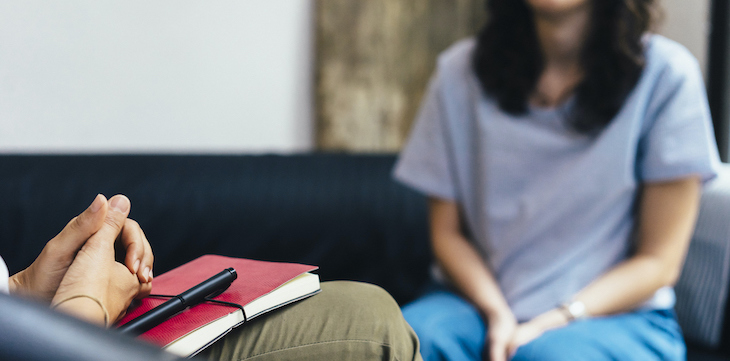What’s the best outfit to wear to a job interview? The answer will vary depending on the type of job and company you’re interviewing with.
You always want to dress to make the best impression, but the outfit you choose depends on whether you’re interviewing at a company with a formal dress code, at a casual startup, or for an informal summer job or internship.
Dressing appropriately is important because the first judgment an interviewer makes is going to be based on how you look and what you are wearing.
If you wear a suit to an interview for a camp counselor, or a T-shirt to an interview at a bank, it’ll send the message that you don’t truly understand what’s involved in the role. Find out what to wear (and what not to wear) for interviews at every type of company.

Key Takeaways
- To dress appropriately for a job interview, follow the employer’s dress code. You can look this up very easily online.
- If the job interview calls for business attire, wear a suit, a sweater and button-down shirt, or a professional-looking dress or skirt.
- Startup jobs may call for more casual interview attire but be sure to dress professionally.
- Choose accessories carefully to ensure that they don’t distract the interviewer.

Professional / Business
Generally, a job interview calls for you to wear professional, or business, attire. This might mean:
- A suit jacket and slacks with a button-down shirt and tie
- A sweater and a button-down shirt
- A blouse and dress pants
- A statement dress
You can also incorporate some modern style trends into your outfit. All interviewees should consider color when selecting an interview outfit and avoid wearing anything too bright or flashy that will distract the hiring manager.
The more important thing to consider when you’re dressing for a job interview is that you should look professional and polished regardless of the type of position you’re seeking. Even though your interview attire depends on the role you’re applying for, no matter what the position, you should go to the interview looking neat, tidy, and well-dressed.

Business Casual
If you have a job interview in a more informal work environment, you might wear a business casual outfit. Business casual outfits are less formal than a suit, but they are also more professional and polished than, say, a T-shirt and shorts or a sundress and sandals.
Of course, make sure you know the dress code before you assume that business casual is acceptable.
If you aren’t sure, call the office and ask the administrative coordinator, or contact the person who scheduled the interview and ask them for advice.
Always dress a bit more professionally than the average employee at the company. If everyone is wearing shorts and T-shirts, for example, you might wear khakis and a polo shirt or button-down.

Casual
If you have an interview at a startup, nix the head-to-toe formal business attire. You want to look appropriate and professional, but not too formal.
Rather than showing up in a black suit and dress shoes, opt for something relaxed but still presentable: relaxed-fit khakis, dark-wash jeans, and a nice top, for example.
Internship / College JobInternship / College Job Interview Attire

Internship / School Job
It’s important to dress professionally when interviewing for a professional job or internship as a college student. It’ll show that you’ll know how to dress appropriately if you’re hired.
Less formal attire is acceptable when interviewing for campus jobs and more informal workplace jobs. However, you still want to dress professionally for most positions, even if they are entry-level. Skip jeans, athleisure, or anything you’d wear to the beach, the gym, or a club. Make sure your clothing is clean, pressed, and free from visible holes or tears.
When you interview for an internship position, your clothing should follow the dress code of the company you’re interviewing with. If you’re hoping to land an internship with a financial services company, professional attire is a must. However, if you’re interviewing for a tech internship at a startup, business casual is a better fit.

Style Tips
Remember that your goal is to impress the interviewer with your skills, experience, and enthusiasm. Avoid any style choices that distract from your abilities or detract from a professional impression.
Choose the Right Accessories
When wearing accessories to an interview, less is more. Select accessories that will enhance your interview attire, not overwhelm it.
Style Your Hair
If you have short hair, schedule a haircut close to the interview—but don’t try out a new hairstyle right before. If you have long hair, choose a neat, professional style. You will want your hair to be professional and polished, like your entire outfit.
Wear Subtle Makeup
If you wear makeup, be sure that it doesn’t distract the interviewer. This is not the time for bold lipstick or glittery eye shadow. Instead, keep makeup unobtrusive.
